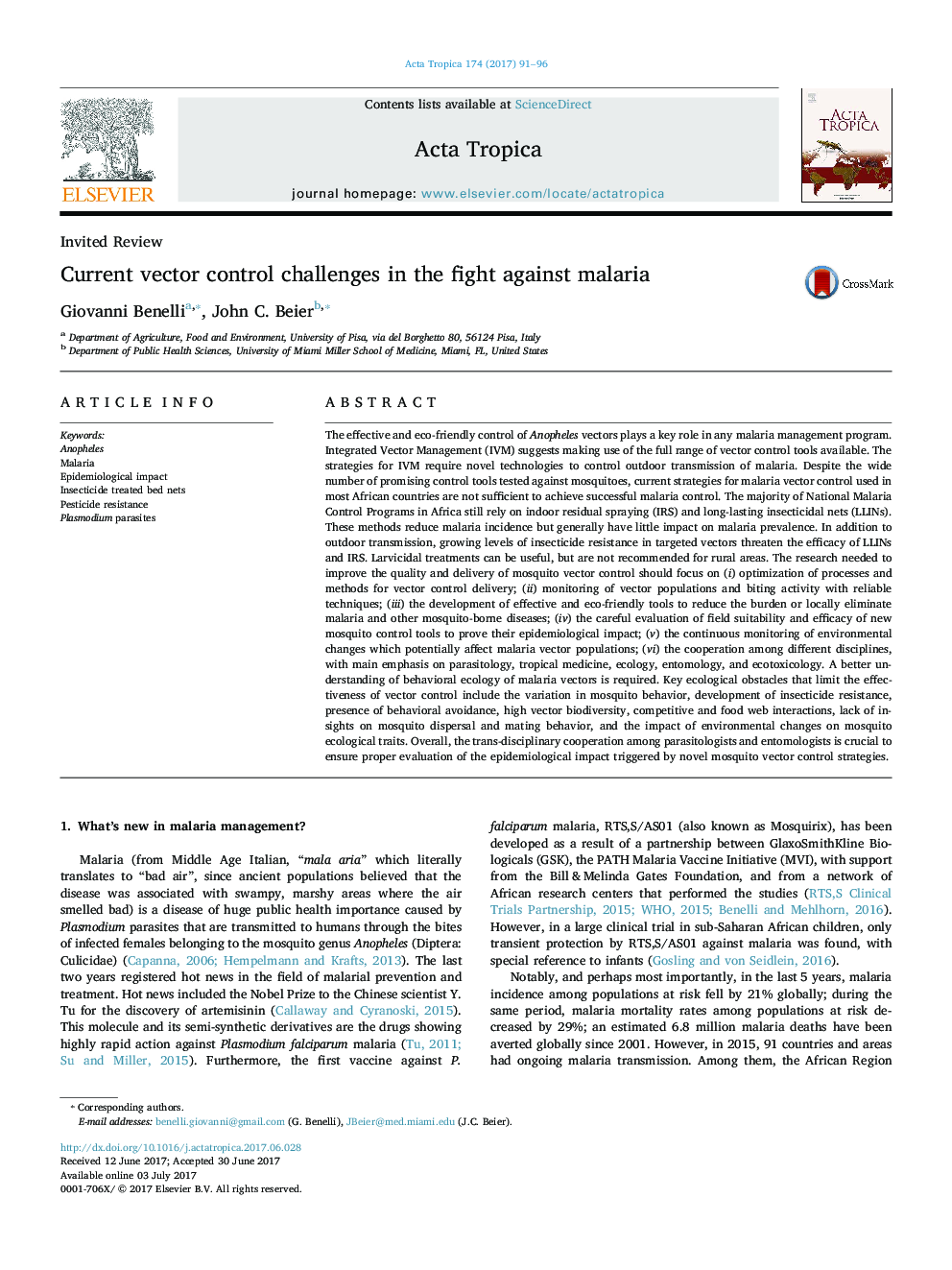| کد مقاله | کد نشریه | سال انتشار | مقاله انگلیسی | نسخه تمام متن |
|---|---|---|---|---|
| 5670754 | 1592750 | 2017 | 6 صفحه PDF | دانلود رایگان |
- The effective control of Anopheles vectors plays a key role in any malaria management program.
- Most National Malaria Control Programs in Africa still rely to IRS and LLINs.
- IRS and LLINs reduce malaria incidence but have little impact on malaria prevalence.
- Outdoor transmission and insecticide resistance threaten the efficacy of LLINs and IRS.
- This review discussed challenges and trends in malaria vector control research.
The effective and eco-friendly control of Anopheles vectors plays a key role in any malaria management program. Integrated Vector Management (IVM) suggests making use of the full range of vector control tools available. The strategies for IVM require novel technologies to control outdoor transmission of malaria. Despite the wide number of promising control tools tested against mosquitoes, current strategies for malaria vector control used in most African countries are not sufficient to achieve successful malaria control. The majority of National Malaria Control Programs in Africa still rely on indoor residual spraying (IRS) and long-lasting insecticidal nets (LLINs). These methods reduce malaria incidence but generally have little impact on malaria prevalence. In addition to outdoor transmission, growing levels of insecticide resistance in targeted vectors threaten the efficacy of LLINs and IRS. Larvicidal treatments can be useful, but are not recommended for rural areas. The research needed to improve the quality and delivery of mosquito vector control should focus on (i) optimization of processes and methods for vector control delivery; (ii) monitoring of vector populations and biting activity with reliable techniques; (iii) the development of effective and eco-friendly tools to reduce the burden or locally eliminate malaria and other mosquito-borne diseases; (iv) the careful evaluation of field suitability and efficacy of new mosquito control tools to prove their epidemiological impact; (v) the continuous monitoring of environmental changes which potentially affect malaria vector populations; (vi) the cooperation among different disciplines, with main emphasis on parasitology, tropical medicine, ecology, entomology, and ecotoxicology. A better understanding of behavioral ecology of malaria vectors is required. Key ecological obstacles that limit the effectiveness of vector control include the variation in mosquito behavior, development of insecticide resistance, presence of behavioral avoidance, high vector biodiversity, competitive and food web interactions, lack of insights on mosquito dispersal and mating behavior, and the impact of environmental changes on mosquito ecological traits. Overall, the trans-disciplinary cooperation among parasitologists and entomologists is crucial to ensure proper evaluation of the epidemiological impact triggered by novel mosquito vector control strategies.
140
Journal: Acta Tropica - Volume 174, October 2017, Pages 91-96
